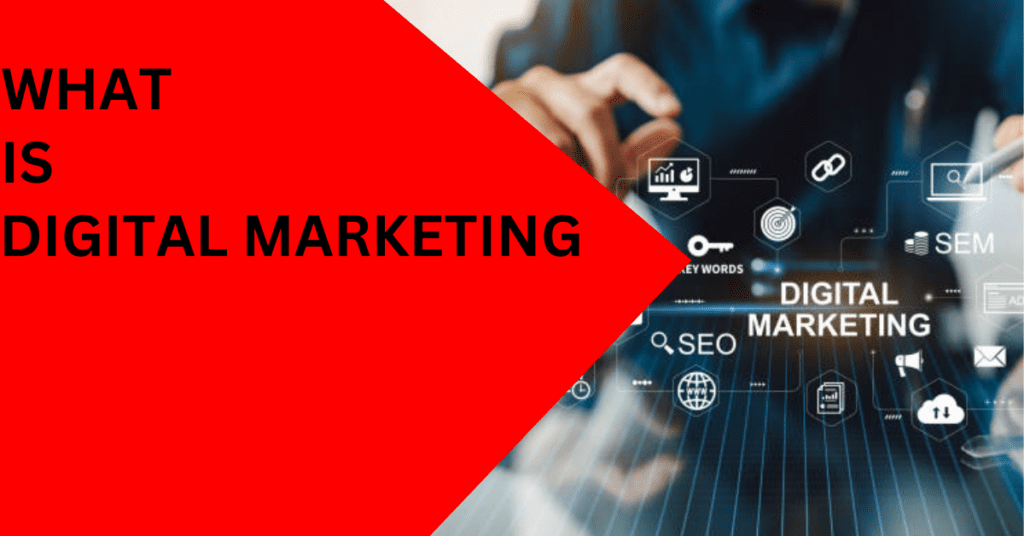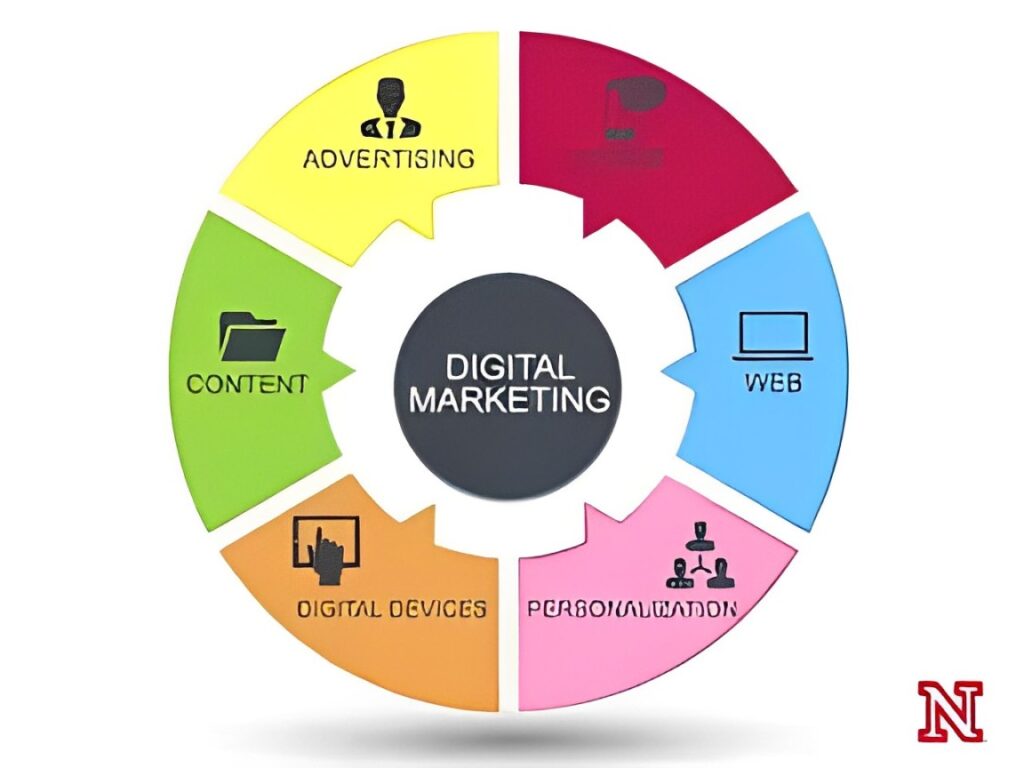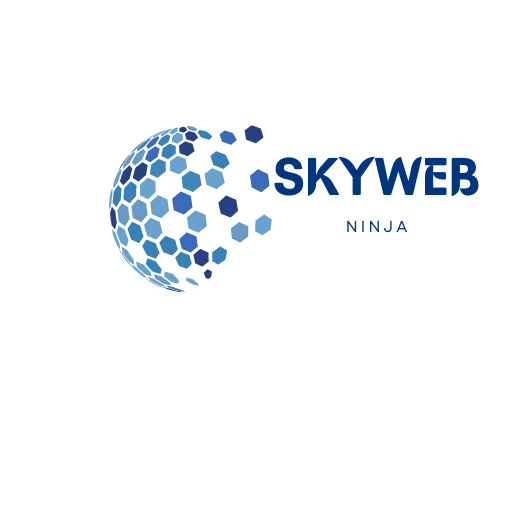
WHAT IS DIGITAL MARKTING?
It is a dynamic and broad field that includes all marketing activities carried out through digital means. It uses the internet, electronic gadgets, and digital technology to connect with new clients and engage existing ones. Search engine optimization (SEO) to improve visibility in search results, search engine marketing (SEM) through paid advertising, social media marketing on platforms such as Facebook and Instagram, content marketing to provide valuable information and engage audiences, email marketing for direct communication, and a variety of other tactics such as influencer partnerships and affiliate marketing are all important components of digital marketing.
It enables organizations to precisely contact their target consumers, analyze campaign efficacy in real time, and alter strategies in response to data-driven insights.

FURTHER MORE
Looking ahead, digital will continue to evolve and shape the future landscape of marketing strategies. As technology evolves and customer behaviors change, digital will become more focused on individualized experiences and targeted messages. Artificial intelligence (AI) and machine learning will be critical in automating operations, evaluating massive amounts of data to optimize advertising, and forecasting customer preferences more accurately. The rise of voice search and smart devices will require digital marketers to optimize content for conversational inquiries and alter strategies to accommodate speech-enabled interactions.
Furthermore, augmented reality (AR) and virtual reality (VR) are anticipated to become integrated into this, providing immersive experiences that allow customers to interact with products or brands in novel ways. Social media platforms will continue to expand as important channels for customer engagement, influencer partnerships, and direct sales, with features such as shoppable posts and live streaming. Data privacy laws and consumer worries about data security will require ethical and open strategies.

LAST BUT LEAST
Overall, the future will be defined by agility, innovation, and a deep understanding of digital technologies to create meaningful connections between brands and consumers like in an increasingly digital-first world. Adaptability or the ability to leverage emerging technologies will be crucial for marketers to stay ahead in this rapidly evolving landscape
SCOPE OF DIGITAL MARKETING
It is a broad and ever-evolving field with a wide range of applications and opportunities. Its scope can be categorized into several key areas:
- Search Engine Optimization (SEO): Optimizing a website and its content to rank higher in search engine results pages (SERPs). This involves keyword research, on-page optimization, technical SEO, and link building.
- Content Marketing: Creating and distributing valuable content to attract and engage a target audience. This can include blogs, articles, videos, infographics, eBooks, and more.
- Social Media Marketing: Utilizing social media platforms (such as Facebook, Instagram, Twitter, LinkedIn, etc.) to promote products or services, engage with customers, and build brand awareness.
- Email Marketing: Sending targeted emails to nurture leads, communicate with customers, and drive conversions. This includes newsletters, promotional offers, and personalized messages.
- Pay-Per-Click Advertising (PPC): Running paid advertisements on search engines (like Google Ads) and social media platforms. Advertisers pay each time their ad is clicked.
- Affiliate Marketing: Partnering with individuals or organizations (affiliates) who promote your products or services in exchange for a commission on sales or leads generated through their referrals. digital marketing
- Influencer Marketing: Collaborating with influencers—individuals with significant followings on social media or other platforms—to promote your brand or products.
- Analytics and Data Analysis: Using tools and metrics to track, measure, and analyze the performance of digital marketing efforts. This helps in making data-driven decisions and optimizing strategies.
- Online Public Relations (PR): Managing and improving the public perception of a brand through online channels, including press releases, media outreach, and managing online reviews.
- Mobile Marketing: Targeting users on mobile devices through SMS, mobile apps, and mobile-optimized websites.
- Conversion Rate Optimization (CRO): Improving the effectiveness of a website or landing page to increase the percentage of visitors who take a desired action, such as making a purchase or filling out a form.
- E-commerce Marketing: Strategies specifically designed for online retail, including product listings, promotions, and shopping experience optimization.
- Video Marketing: Creating and using video content to engage with audiences, promote products, and drive brand awareness. This includes platforms like YouTube and TikTok.
- Voice Search Optimization: Adapting content and SEO strategies for voice search queries, which are becoming increasingly popular with the rise of voice-activated devices.
- Virtual and Augmented Reality Marketing: Using immersive technologies to create engaging experiences for users, such as virtual product demonstrations or augmented reality ads.
LEARN DIGITAL MARKETING
1. Online Courses and Certifications
- Coursera: Offers courses from universities and institutions on various aspects of digital marketing. Look for courses from institutions like the University of Illinois or Google
- Udemy: Provides a wide range of digital marketing courses, from beginner to advanced levels, often created by industry professionals.
- LinkedIn Learning: Features courses on digital marketing strategies, SEO, content marketing, and more.
- HubSpot Academy: Offers free certifications on inbound marketing, content marketing, and more.
- Google Digital Garage: Provides free courses on digital marketing basics and certifications that are recognized in the industry.
- Facebook Blueprint: For those interested in social media marketing, Facebook offers a series of free courses and certifications.
2. Books and eBooks
- “Digital Marketing for Dummies” by Ryan Deiss and Russ Henneberry: A great introductory book covering various digital marketing concepts.
- “Jab, Jab, Jab, Right Hook” by Gary Vaynerchuk: Offers insights on social media marketing strategies.
- “Building a StoryBrand” by Donald Miller: Focuses on effective brand messaging and communication.
3. Blogs and Websites
- Neil Patel Blog: Provides a wealth of articles on SEO, content marketing, and digital marketing strategies.
- Moz Blog: Offers insights into SEO, link building, and other aspects of digital marketing.
- Content Marketing Institute (CMI): Features articles, case studies, and research on content marketing.
- Marketing Land and Search Engine Land: Cover news and updates on digital marketing trends and best practices.
4. YouTube Channels
- Neil Patel: Offers video content on various digital marketing topics and digital marketing.
- Google Webmasters: Provides tutorials and tips for improving website performance and SEO.
- HubSpot: Features videos on inbound marketing, sales, and customer service.
5. Podcasts
- “Marketing Over Coffee”: Covers marketing trends and tactics in a casual format.
- “Online Marketing Made Easy”: Offers practical tips and strategies for digital marketing.
6. Workshops and Webinars
- Attend industry events: Look for local or virtual workshops and webinars hosted by digital marketing experts and organizations.
- Marketing Conferences: Events like Content Marketing World, MozCon, and HubSpot’s Inbound Conference offer valuable learning and networking opportunities.
7. Practice and Experience
- Build your own website or blog: Apply what you learn by creating and managing your own site.
- Freelance or Intern: Gain hands-on experience by working on real digital marketing projects, whether through internships and freelance opportunities.
- Volunteer: Offer digital marketing help to local businesses or non-profits to build experience.
8. Communities and Forums
- Reddit: Subreddits like r/digital_marketing and r/SEO are great for discussions and advice.
- Quora: Find answers to specific digital marketing questions and learn from industry experts.
you can learn the basics of digital marketing on your own, but because the digital marketing landscape never stops evolving, self-guided learning may not be the best route. visit now DIGIPERFORM
click here to know more

